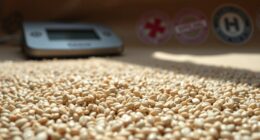We have come across a nutritional powerhouse that is emerging as a leader in the realm of healthy eating options.
Flax seeds, those tiny but mighty seeds, are outperforming their rivals when it comes to delivering essential nutrients.
In this article, we’ll explore why flax seeds are gaining popularity and leaving their competitors behind.
From their impressive omega-3 content to their high fiber and antioxidant levels, flax seeds are proving to be a game-changer for those seeking a nutritious and fulfilling diet.
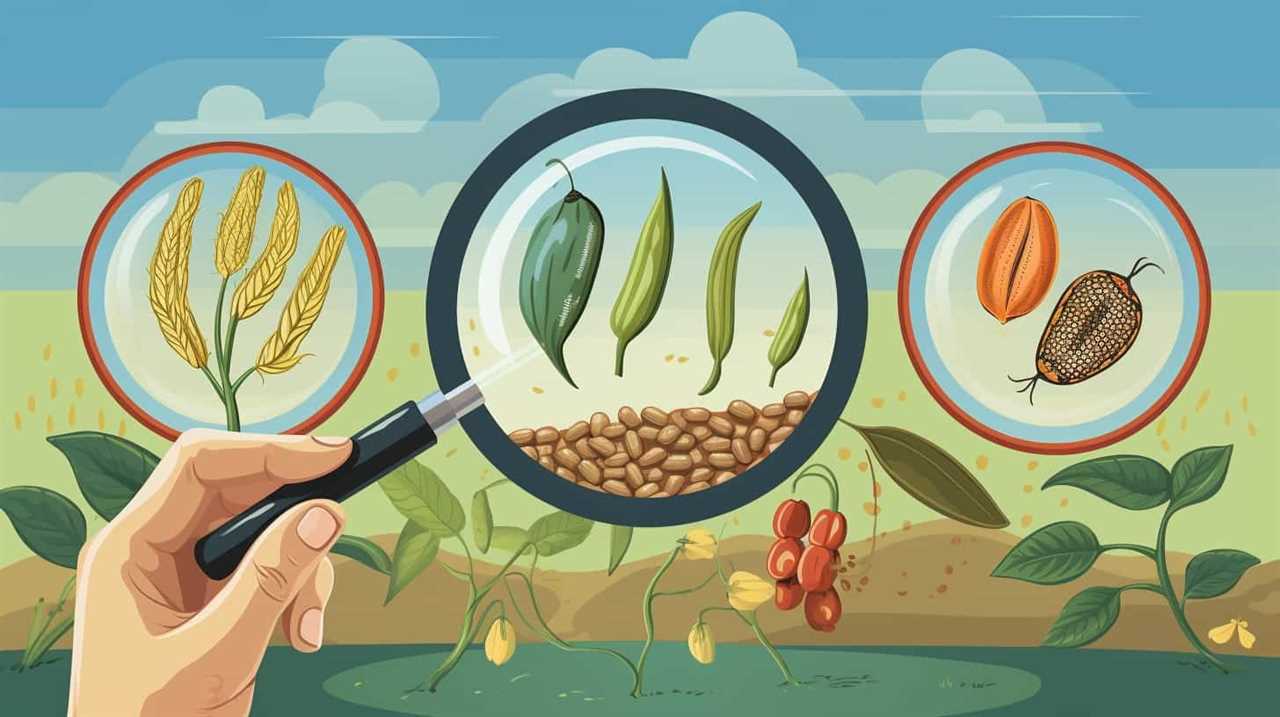
Key Takeaways
- Flax seeds are a nutritional powerhouse, rich in omega-3 fatty acids, lignans, and fiber.
- Flax seeds offer a range of antioxidants that protect cells from damage and have potential anticancer effects.
- Flax seeds have a higher omega-3 content compared to chia seeds, making them beneficial for cardiovascular health, brain function, and immune support.
- Flax seeds surpass chia seeds in terms of fiber content, promoting digestion, satiety, and heart health.
Nutrient Comparison: Chia Vs. Flax
When comparing the nutrients of chia seeds and flax seeds, we find distinct differences that make flax seeds stand out.
While both seeds are known for their high nutritional value, flax seeds have a higher concentration of certain nutrients that are essential for our overall health.
One key difference is the nutrient absorption between chia and flax seeds. Flax seeds contain a higher amount of omega-3 fatty acids, which are crucial for brain health and reducing inflammation.
Additionally, flax seeds are rich in lignans, which have been shown to lower the risk of heart disease and certain types of cancer.
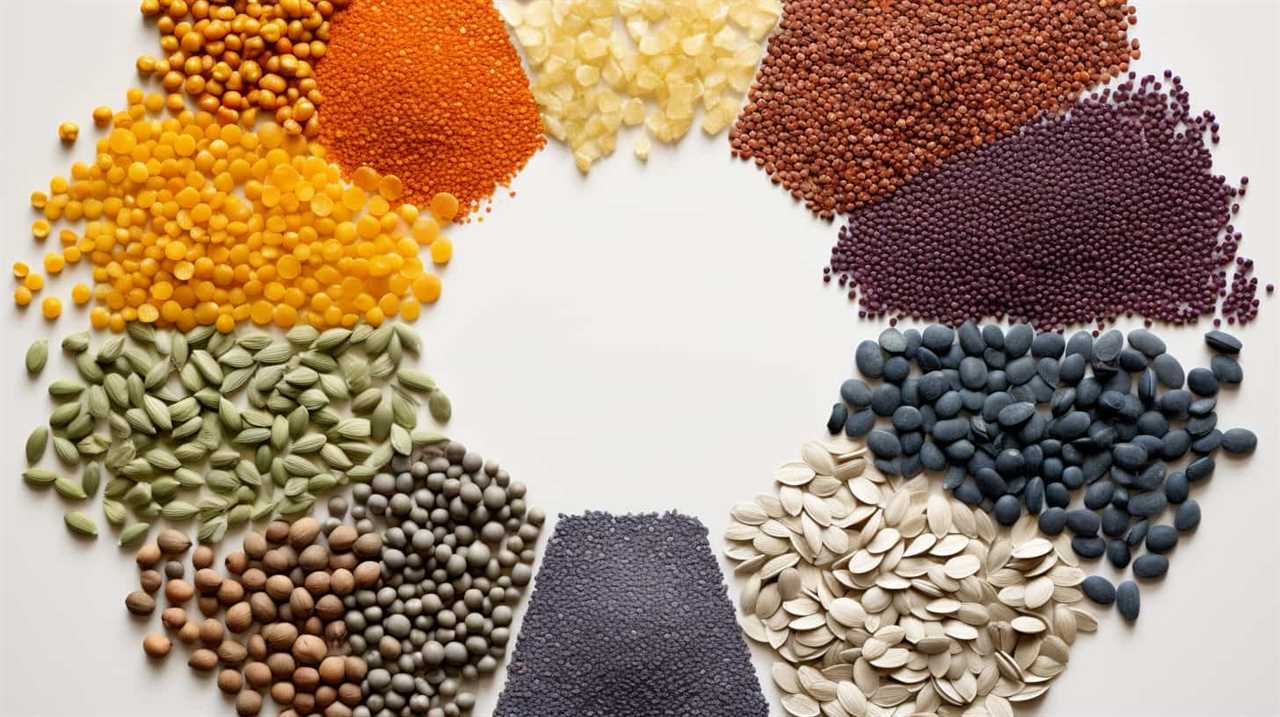
Chia seeds, on the other hand, are known for their high fiber content, which aids in digestion and helps regulate blood sugar levels.
Omega-3 Content: Chia Vs. Flax
As we delve into the omega-3 content of chia seeds versus flax seeds, it becomes evident that flax seeds continue to outshine their nutritional rival. Flax seeds are known to be one of the richest plant-based sources of omega-3 fatty acids, specifically alpha-linolenic acid (ALA).
Just one tablespoon of ground flax seeds provides approximately 1.6 grams of ALA, whereas the same amount of chia seeds offers only about 0.6 grams. Omega-3 fatty acids are essential for brain health, heart health, and reducing inflammation in the body.
With higher omega-3 content, flax seeds offer greater benefits in terms of promoting cardiovascular health, improving brain function, and supporting a healthy immune system. Incorporating flax seeds into your diet can be a simple and effective way to increase your omega-3 intake and reap the health benefits they offer over chia seeds.

Fiber Content: Chia Vs. Flax
Flax seeds surpass chia seeds in terms of fiber content. Fiber is an essential nutrient that aids in digestion, promotes satiety, and helps maintain a healthy weight. A comparison of the fiber content of flax and chia seeds shows that flax seeds contain more fiber per serving than chia seeds. In fact, a single tablespoon of flax seeds contains about 3 grams of fiber, while the same amount of chia seeds only provides around 2 grams of fiber. This makes flax seeds a better choice for those looking to increase their fiber intake.
| Flax Seeds | Chia Seeds | |
|---|---|---|
| Fiber Content (per tablespoon) | 3 grams | 2 grams |
In addition to their higher fiber content, flax seeds also offer other health benefits such as promoting heart health, reducing inflammation, and supporting brain function. When it comes to culinary uses, both flax and chia seeds can be added to smoothies, baked goods, cereals, and yogurt. However, flax seeds have a slightly nutty flavor, while chia seeds are more neutral in taste. Overall, incorporating flax seeds into your diet can be a great way to boost your fiber intake and enjoy their numerous health benefits.
Antioxidant Levels: Chia Vs. Flax
While flax seeds have proven to be superior in terms of fiber content, the comparison between chia seeds and flax seeds extends to their antioxidant levels as well. Antioxidants are compounds that help protect our cells from damage caused by free radicals.
Both chia and flax seeds are rich sources of antioxidants, but their phytochemical composition differs. Chia seeds contain higher levels of certain antioxidants, such as quercetin and kaempferol, which have been linked to numerous health benefits, including reducing inflammation and improving heart health.

On the other hand, flax seeds are particularly high in lignans, a type of antioxidant that has been associated with a reduced risk of certain cancers, such as breast and prostate cancer.
Incorporating both chia and flax seeds into your diet can provide a diverse range of antioxidants and support overall health.
Protein Content: Chia Vs. Flax
When comparing the protein content, chia seeds have a higher amount compared to flax seeds. Chia seeds are known for their high protein quality, as they contain all nine essential amino acids that our bodies cannot produce on their own. This makes them a complete protein source, which is beneficial for muscle repair and growth. Flax seeds, on the other hand, also contain protein but in lower amounts compared to chia seeds. While flax seeds are a good source of omega-3 fatty acids and fiber, chia seeds provide more protein per serving.
To illustrate the protein content comparison, here is a table showcasing the protein content of chia seeds and flax seeds:
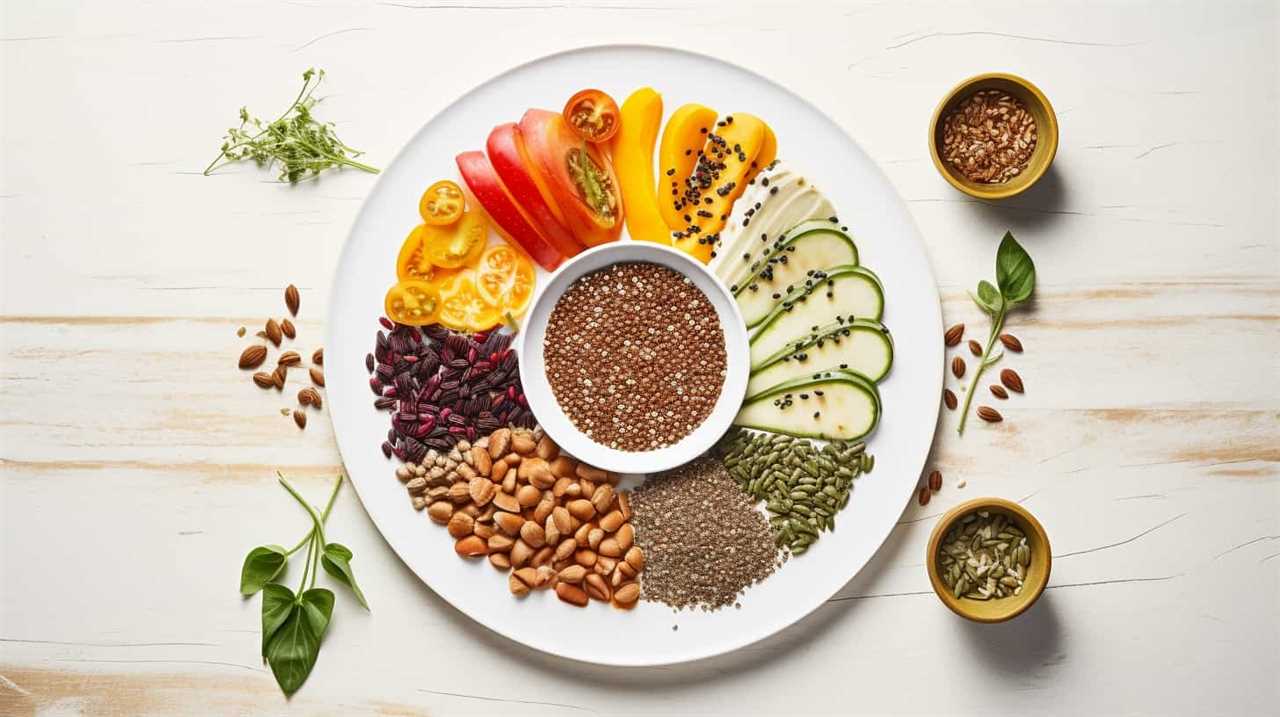
| Protein Content (per 100g) | |
|---|---|
| Chia Seeds | 16.5g |
| Flax Seeds | 18.2g |
As we can see, while flax seeds do contain protein, chia seeds have a higher protein content. Therefore, if you are looking to increase your protein intake, chia seeds may be a better choice.
Frequently Asked Questions
Are There Any Potential Side Effects or Risks Associated With Consuming Flax Seeds?
There are potential side effects and risks associated with consuming flax seeds. These include digestive issues, allergic reactions, and interactions with certain medications. It’s important to be aware of these when incorporating flax seeds into your diet.
How Can Flax Seeds Be Incorporated Into a Daily Diet?
We can incorporate flax seeds into our daily diet to reap their benefits. Flax seeds can be added to smoothies, oatmeal, or baked goods for a boost of fiber, omega-3 fatty acids, and antioxidants.
Are There Any Specific Health Benefits of Chia Seeds That Are Not Mentioned in the Article?
There are specific health benefits of chia seeds not mentioned in the article, such as their high omega-3 content and potential aid in weight loss. It is important to note any potential side effects or risks associated with consuming flax seeds.
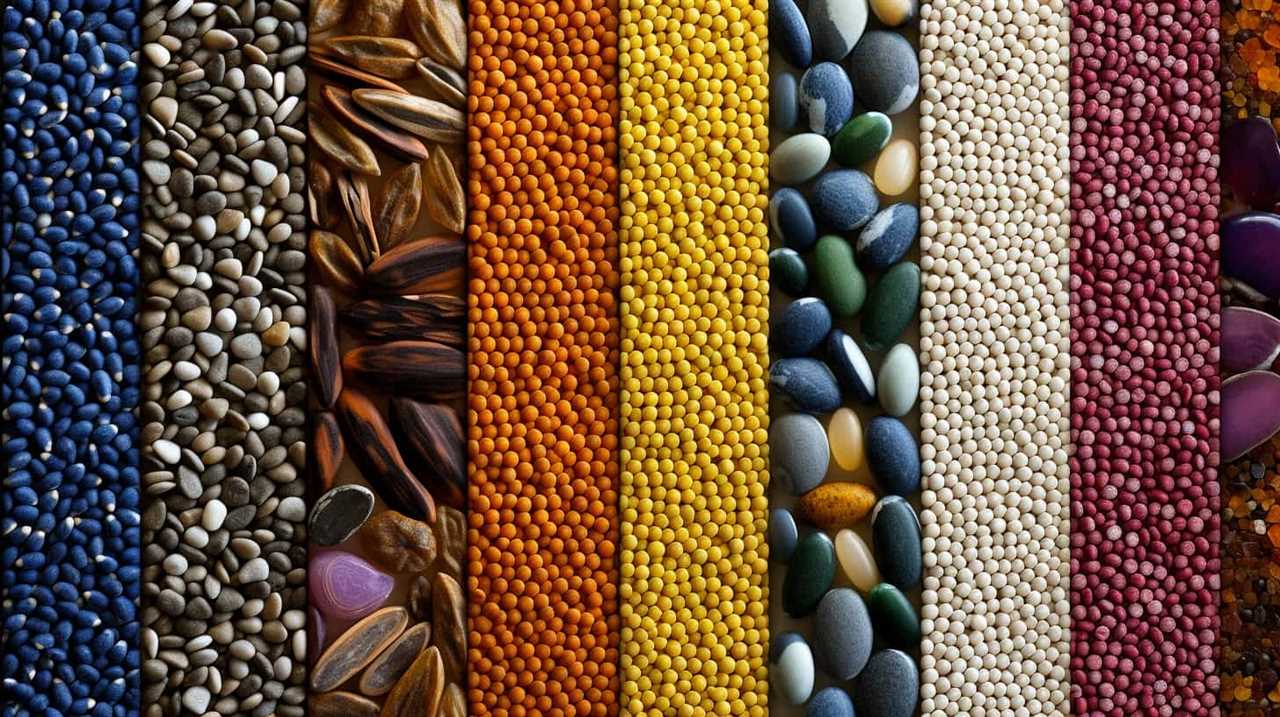
Can Flax Seeds Help With Weight Loss or Managing Blood Sugar Levels?
Flax seeds are a great choice for weight loss and blood sugar management. They are high in fiber and healthy fats, which help keep you full and regulate blood sugar levels.
Are There Any Differences in Taste or Texture Between Chia and Flax Seeds?
Taste differences and nutritional comparisons between chia and flax seeds are important to consider. We should explore the distinct flavors and textures of both seeds to understand their unique qualities and benefits.
Conclusion
In the battle of nutritional rivals, flax seeds are emerging as the frontrunner. With higher levels of omega-3 fatty acids, fiber, antioxidants, and protein compared to chia seeds, flax seeds offer a powerhouse of nutrients packed into a tiny package.
This evidence-based conclusion highlights the superiority of flax seeds, leaving the audience feeling informed and motivated to incorporate this nutritional powerhouse into their diet.








